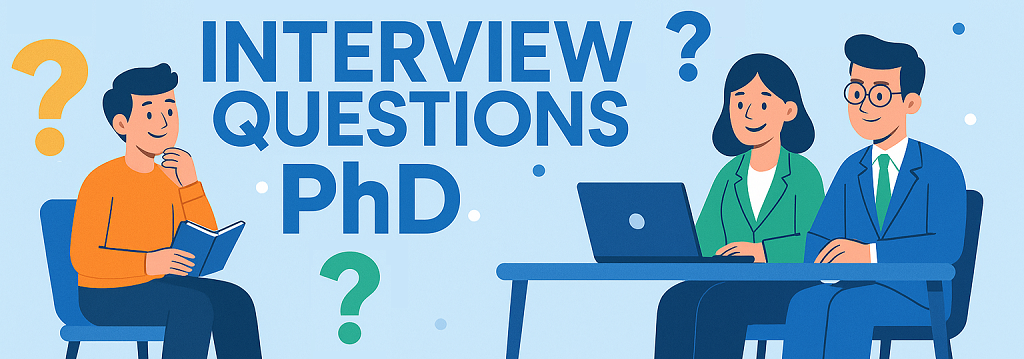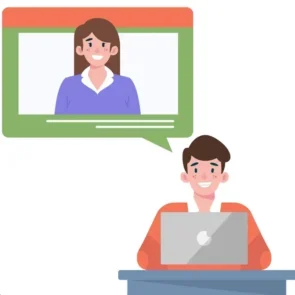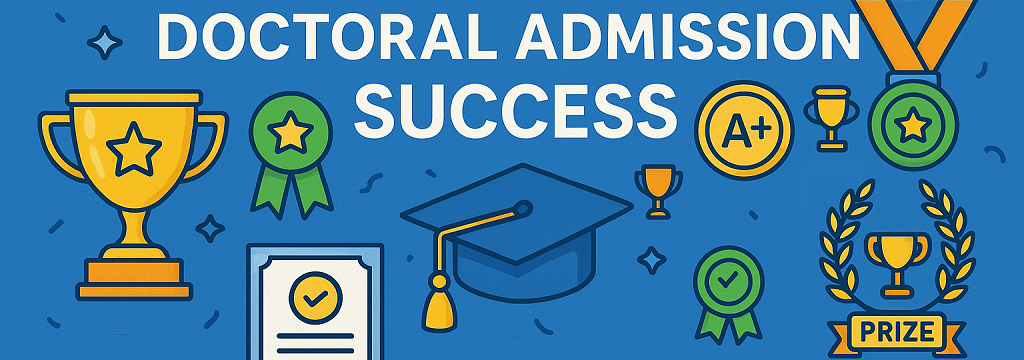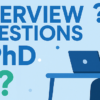
In the PhD admission process, the PhD interview, though often intimidating, is a crucial opportunity to shine and build a connection with potential PhD supervisors. It is also the best chance to demonstrate your suitability for their research groups. At the end of the interview, there is usually a Q&A segment, during which interviewers may ask: Do you have any questions for us? Asking thoughtful and relevant questions can help you stand out. This article focuses on both the questions you may be asked and those you should consider asking. Let’s explore how to confidently respond to interview questions and pose insightful ones at this pivotal stage.
Preparing for the PhD Interview: Research is Key
The first step to a great PhD interview is preparation. So, become well-versed in the supervisors’ research area, their faculty, and the relevant program. Examine their most recent publications and enquire, “How does your most recent work impact student projects?” This connects their knowledge to your interest. To improve tone and clarity, rehearse your PhD interview questions out loud. A brilliant question can be ruined by clumsy wording, so record yourself or act it out with a friend. Nerves are transformed into confidence via preparation. Before her PhD interview, Sara looked up the interviewer’s book and enquired about its methods. She showed initiative as the conversation flowed smoothly. When you’re under pressure, your homework pays dividends.

Your Questions Matter in a PhD Interview
This article begins by reviewing PhD interview questions and answers in reverse, starting with the often-overlooked but vital question: “Do you have any questions for us?” You must prepare thoughtful questions for the interviewers to demonstrate your genuine interest and your serious intent in their fully funded PhD program. In a PhD interview, it is a sin not to ask questions because it conveys a lack of interest. Always have a few on hand because even the best prospects struggle in this situation. In a PhD interview, your questions reflect your alignment with the program, enthusiasm, and level of preparation. Remember that it is not a one-way street.
A powerful performance can be undone by silence. Asking too many questions also backfires. Choose three to five questions that have a significant impact. It is a waste of time to ramble about “What is the weather like?” By asking insightful questions, you may tip the balance in your favor. Admissions committees in university departments or selection committees of fully funded scholarships notice candidates who look beyond the obvious. This is your chance to present yourself as an engaged and curious future candidate. Imagine leaving a strong impression by asking about funding opportunities, research directions, or lab resources. The discussion that follows could truly set you apart. Your curiosity can make all the difference in such a competitive environment.

Questions to Ask During PhD Interview
Asking targeted, pertinent questions is essential to a successful PhD interview. “What’s the program like?” and other generic questions are ineffective; instead, try asking “How does your team collaborate on interdisciplinary projects?” This demonstrates depth and purpose. Adapt your PhD interview questions to the interviewer’s experience or the program’s advantages. To personalize the conversation, ask, “How do you see my background fitting your current research?” It’s also a subdued method of emphasizing your credentials. Don’t ask general questions that can be Googled! Pay attention to details only an insider can offer, such as publication expectations or mentoring approach. Being precise here shows that you take the PhD interview seriously.
PhD Interview Questions About Research and Supervision
Research alignment is crucial in a PhD interview, so ask about current initiatives or future directions. Try asking, “What major question does your group hope to address next?” This gives you insight into their priorities and paves the way for you in the team. Supervision plays a major role in shaping your PhD experience, so it is a common topic in interviews. Their supervision style can be revealed through questions like, “How often do you meet with students?” or “How do you handle creative differences?” Their responses help you assess your compatibility with the supervisor. For example, Hamed asked his interviewer about co-authorship policies during his interview for PhD in psychology. Asking such questions demonstrates foresight and long-term thinking.
Interview Questions for PhD About Funding and Resources
Since funding significantly influences your experience and success in the program, do not hesitate to ask about it during the PhD interview. A good starting point is asking, “Are there opportunities for teaching assistantships or research grants?” This shows financial awareness and initiative. Resources also matter. Consider asking, “What lab facilities or archives will I have access to?”—a question directly tied to the feasibility of your research. Well-chosen questions can uncover unexpected advantages or limitations. For example, Emma, a history applicant, asked about access to digital archives during her PhD interview. The panel was impressed, and their thorough response gave her confidence in the program. Asking thoughtful, targeted questions can meaningfully boost your doctoral admission success.
Interview Questions for PhD About Student Life
A PhD interview also offers insight into day-to-day life as a student. To understand the workload, you might ask, “How do students balance research and coursework?” This question shows you care about thriving, not just getting by. Community also matters, so consider asking, “What is the graduate student culture like here?” These types of questions help you picture your life beyond just academic work. For instance, during his interview, Liam asked about peer collaboration and learned that the cohort was very supportive. You can end on a positive and forward-looking note by asking, “What advice would you give to new students?”, i.e., a subtle way of signaling your intent to join.
Additional PhD Interview Questions You Can Ask
1. What kinds of job positions do your past PhD students now have?
2. What do you expect of your PhD candidates?
3. What is your training plan for PhD candidates?
4. Does your group and department have funding for conferences or annual scientific meetings?
5. How does the group handle publication authorship? How often do you publish?
Common PhD Interview Questions and Answers About You
Before the Q&A session at the end of your PhD interview, you will typically be asked a mix of behavioral, technical, and career-focused questions. Interviewers often start by exploring a range of topics, including behavioral scenarios, technical knowledge, and your long-term academic or career goals. These questions are designed to assess your motivation, problem-solving skills, research experience, and fit for the program. Being well-prepared for this stage is crucial, as it sets the tone for a successful interview. Below, you will find 10 common PhD interview questions that candidates are frequently asked, along with tips to help you craft strong, thoughtful responses:
1. Tell us about yourself: This is a popular opener for just about any type of interview. It’s meant to be an easy icebreaker, but that doesn’t mean there isn’t a wrong answer. Ensure your response is relevant to the context of a PhD interview. Talk about your academic background, motivation, and interests. You do not have to get into the details here; just give an overview.
2. Why do you want to do a PhD? This is another straightforward question that doesn’t have a straightforward answer. A PhD is a big undertaking, and you will have to be driven to achieve it, though. Your answer should address your motivation for doing a PhD in a way that conveys your passion and enthusiasm for the subject.
3. Why are you interested in this program? What drew you to this program and this school? Does it have a unique feature or take a different approach than other programs? Are there certain professors you are interested in working with? Your answer to this question shows you have done some research and are ready to engage in the department. It’s also an opportunity to demonstrate that you don’t just want a PhD, you want one from this school.
4. What experience makes you a good candidate? Yes, the interviewer has read your CV, but this question allows you to draw their attention to specific qualifications or skills that might not be obvious from your resume. Talk about courses that have taught you the necessary skills for graduate work, or give examples of past research experience from your Bachelor’s or Master’s.
5. How did you develop this research proposal (if any)? There are no trick questions here. The interviewer wants to see that you are engaged with the field and have spent some time preparing your research proposal. Take them through your thought process and discuss the background reading and research you did. What other approaches did you consider before deciding on this one? What will your project contribute to the field?
6. What difficulties would you expect to encounter during this project? No matter how carefully you plan, no project goes off without a hitch. Be honest about where you see potential difficulties, but more importantly, discuss how you plan to work through them.
7. What are your strengths and weaknesses? Another classic question in an interview for PhD positions, you do not want to be answering off the top of your head. Pick a strength relevant to this position and then give a few examples of how you have used it well. When choosing a weakness, be truthful and then (using examples) talk about how you have been working to overcome it.
8. Tell us about a time you experienced a setback: The next three to six years of your PhD won’t be smooth sailing. You are likely to hit many snags along the way. The interviewer wants to know you are resourceful and can handle these setbacks. Try to think of an academic challenge you have had to overcome rather than a personal one.
9. What are your future career plans? This is an additional chance to explain why you are pursuing a PhD and to consider your long-term academic and career objectives. It enables you to demonstrate that you have given serious thought to both your motivations for conducting doctorate research and the possible career routes and opportunities that may arise. Whether your goal is to stay in academia, move into business, or pursue other interests, having a clear vision for your future helps demonstrate your dedication to and readiness for the demands of a PhD.
10. How will a PhD help you achieve your future goals? Someone with a clear goal is likely to be more committed to pursuing a PhD. For many, the goal is to build an academic career. This is an opportunity to show that you understand the academic career path. Becoming a principal investigator or professor in academia is your long-term goal, and this PhD position will equip you with the necessary skills and expertise to achieve it.
The Emotional Side of the PhD Interview
Nervous and hopeful at the same time, the PhD interview is an emotional rollercoaster. It’s a crucial point where your academic path and future goals meet; it’s much more than just a conversation about logistics. It’s normal to feel nervous, but asking intelligent, prepared questions is one of the best ways to focus that energy. Doing this demonstrates that you actively participate in the process rather than just enduring it. Despite the academic rigor and formal structure, the interview is a human experience. It’s a unique chance to meet possible supervisors, show them how passionate you are, and prove that you fit in well with their research setting.

Last Words
The PhD interview is far more than a formal checkpoint in the admission process, either for on-campus or online PhD programs. It is your moment to demonstrate initiative, passion, and preparedness. You can turn the interview into a two-way dialogue by carefully researching your potential supervisors, rehearsing thoughtful responses, and crafting insightful questions. Asking well-considered questions not only shows your genuine interest and fit for the program but also highlights your curiosity, clarity of goals, and readiness for the demands of doctoral research. Ultimately, the interview is your opportunity to go beyond your application materials and leave a memorable impression as a future collaborator, not just a candidate.
Frequently Asked Questions (FAQs)
Is it necessary to ask questions at the end of a PhD interview?
Yes, it is crucial. Not asking questions can be perceived as a lack of interest or initiative.
How should I prepare for common PhD interview questions and answers?
Review your academic and research background, know your proposal thoroughly, and be ready to discuss your motivations, challenges you’ve overcome, and long-term goals. Practicing answers out loud or with a peer can help you communicate clearly and confidently.
What are typical PhD interview questions to ask?
Ask thoughtful, research-related questions reflecting your interest in the program and your preparation. Examples include:
– What major research questions is your group currently focusing on?
– How do you see my background aligning with your ongoing projects?
– What resources (labs, archives, funding) will I have access to?




0 Comment